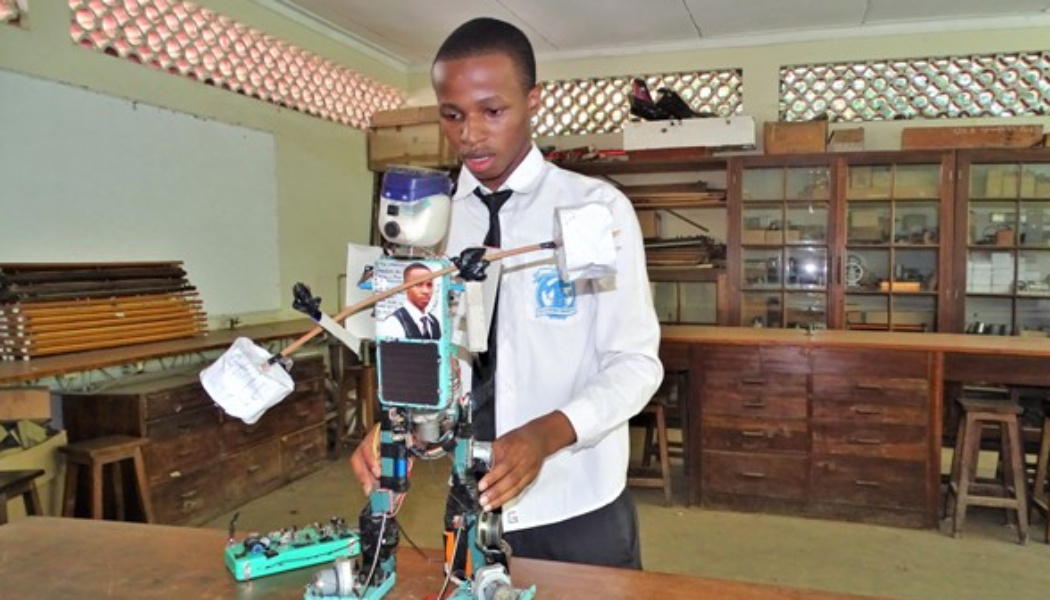
Tanzanian student builds solar-powered robot

A high school student in Tanzania has built a robot that can walk, talk and turn its head with the help of a remote control.
The six form student, Gracious Ephraim, of Ilboru High School in the northern Tanzanian city of Arusha, built the robot using local materials including aluminium box, wires, tin containers, pieces of metal and a memory chip for the brain.
The robot is powered by solar energy and cost the science student 200,000 Tanzanian Shillings ($89) to put it together in 12 months.
Ephraim told the newspaper that the self-financed robot has a memory chip component that contains some recorded voice notes that can be triggered remotely to make the robot reply to some questions, and even sing some songs.
Gracious Ephraim said his motivation is to “innovate things that can solve problems because for many years, science students in the country did not want to invent, they were all focusing on getting employed but, being a scientist is all about devising and making new things.”
“Tanzania aims at industrialisation, which means factories and other production lines must work 24 hours. But, humans cannot work around the clock, so I envisage to have robots working at night and people during the day. This will also reduce the cost of paying workers overtime,” he added.
Tanzanian students are benefitting from a robotics programme that started early this year and was organised by a Korean organisation called E3-Empower Africa.
They are currently training 30 students from two secondary schools in Arusha City to build robots that can clear roads, raise alerts during incidents and then pick or deliver items.
Dubbed the “Robotic Camp” programme for Tanzania, the project facilitator, Esther Seo told the local media that they are targeting ordinary schools where students have little or no computer background.
“We are not only training Tanzanian students to produce robots, but also have the same program in the United States, which means this is actually an advanced initiative even for the developed countries,” Seo added.






